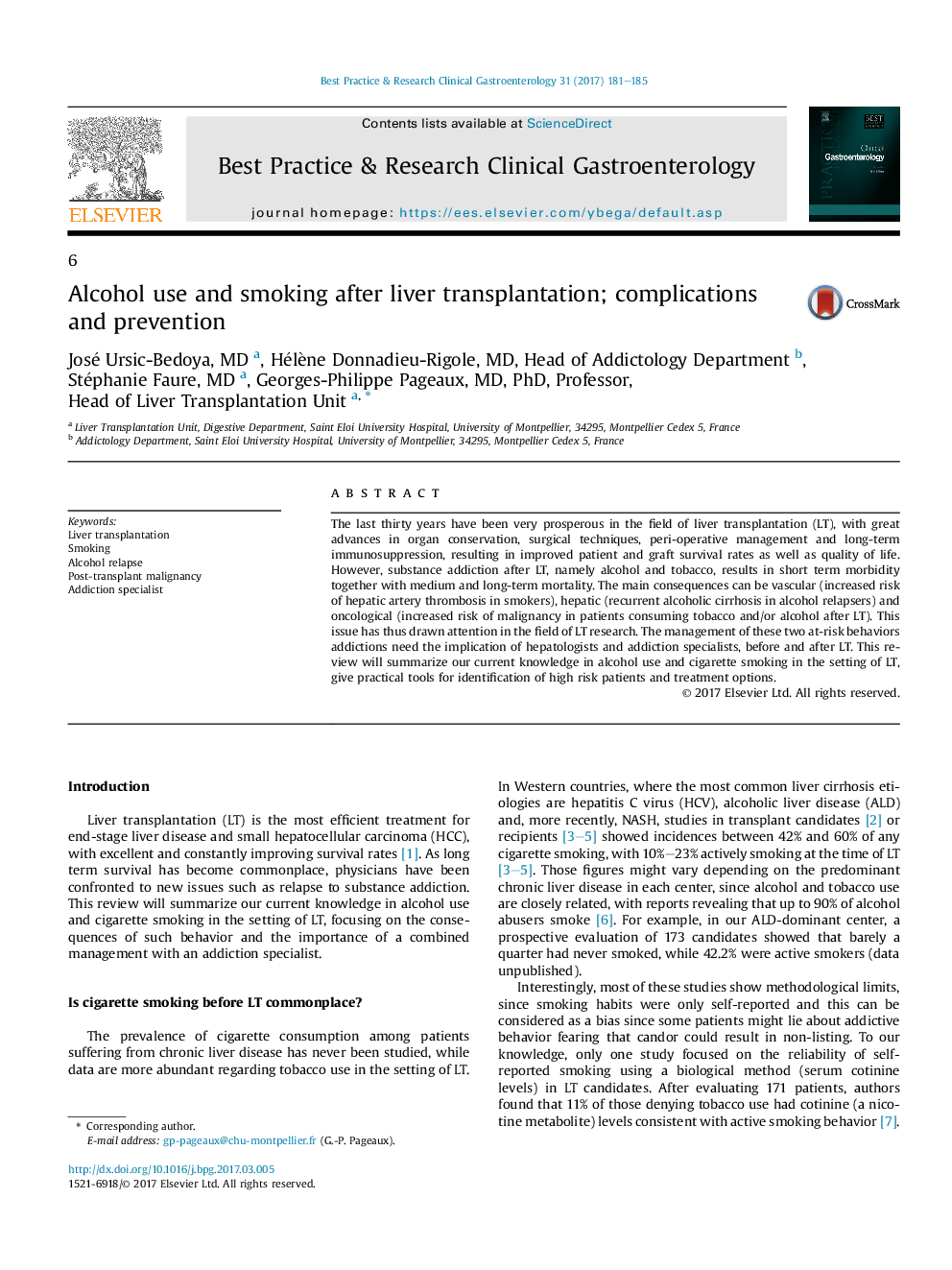| Article ID | Journal | Published Year | Pages | File Type |
|---|---|---|---|---|
| 5654513 | Best Practice & Research Clinical Gastroenterology | 2017 | 5 Pages |
Abstract
The last thirty years have been very prosperous in the field of liver transplantation (LT), with great advances in organ conservation, surgical techniques, peri-operative management and long-term immunosuppression, resulting in improved patient and graft survival rates as well as quality of life. However, substance addiction after LT, namely alcohol and tobacco, results in short term morbidity together with medium and long-term mortality. The main consequences can be vascular (increased risk of hepatic artery thrombosis in smokers), hepatic (recurrent alcoholic cirrhosis in alcohol relapsers) and oncological (increased risk of malignancy in patients consuming tobacco and/or alcohol after LT). This issue has thus drawn attention in the field of LT research. The management of these two at-risk behaviors addictions need the implication of hepatologists and addiction specialists, before and after LT. This review will summarize our current knowledge in alcohol use and cigarette smoking in the setting of LT, give practical tools for identification of high risk patients and treatment options.
Related Topics
Health Sciences
Medicine and Dentistry
Endocrinology, Diabetes and Metabolism
Authors
José MD, Hélène (Head of Addictology Department), Stéphanie MD, Georges-Philippe (Professor, Head of Liver Transplantation Unit),
